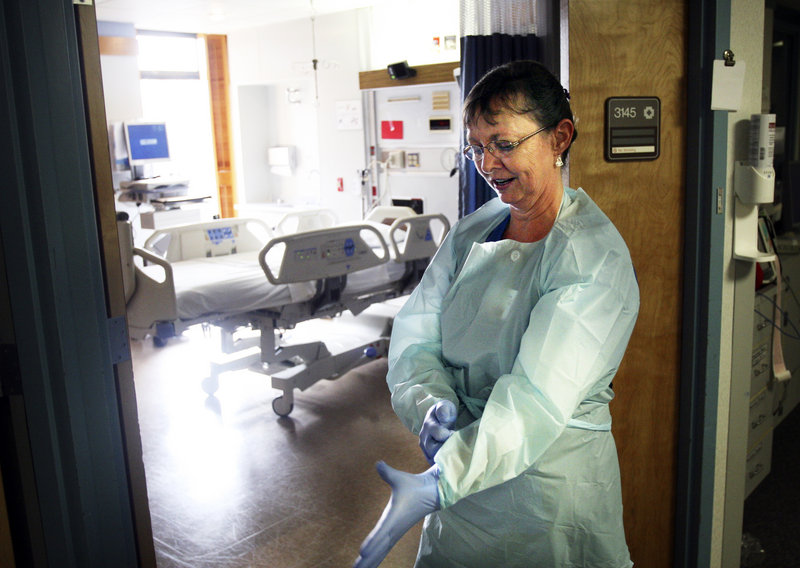AUGUSTA – The Maine Center for Disease Control and Prevention, Maine doctors and Maine hospitals have news for parents this cold and flu season: Antibiotics don’t work for a cold or the flu.
Antibiotics kill bacteria, not viruses. And colds, flu and most sore throats are caused by viruses. Antibiotics don’t touch viruses – never have, never will. And it’s not really news. It’s a long-documented medical fact.
But tell that to parents seeking relief for a child’s runny nose. Research shows that most Americans have either missed the message about appropriate antibiotic use or they simply don’t believe it.
According to public opinion research, there is a perception that “antibiotics cure everything.”
Americans believe in the power of antibiotics so much that patients go to the doctor expecting to get a prescription. And many do. Three out of 10 children who visit an outpatient provider with the common cold receive an antibiotic. This is an improvement from previous years, but antibiotics are not indicated for a common cold.
Why does this happen? Physicians often are too pressured for time to engage in lengthy explanations of why antibiotics won’t work. And when the diagnosis is uncertain – as many symptoms for viral and bacterial infections are similar – doctors are more likely to yield to patient demands for antibiotics.
The problem is, taking antibiotics when they are not needed can do more harm than good. Widespread inappropriate use of antibiotics is one of the major reasons for an increase in drug-resistant bacteria. Families and entire communities feel the impact when disease-causing germs become resistant to antibiotics.
The most obvious consequence of inappropriate antibiotic use is its effect on the sick patient. When antibiotics are incorrectly used to treat children or adults with viral infections, such as colds and flu, they aren’t getting the best care for their condition. A course of antibiotics won’t fight the virus, make the patient feel better, yield a quicker recovery or keep others from getting sick.
Antibiotics also can have serious side effects ranging from nausea, vomiting and diarrhea to life-threatening allergic reactions.
A less obvious consequence of antibiotic overuse is the boost it gives to drug-resistant disease-causing bacteria. Almost every type of bacteria has become less responsive to antibiotic treatment when it really is needed. These antibiotic-resistant bacteria can quickly spread to relatives, classmates and co-workers – threatening the community with a new strain of infectious disease that is more difficult to cure and more expensive to treat.
For example, cases of H1N1 flu have shown resistance to oseltamivir, one of only two antivirals that work against it. Methicillin-resistant Staphylococcus aureus, known as MRSA, remains a problem in many health care settings and can be life-threatening for patients who have weakened immune systems. Even the common sexually transmitted disease gonorrhea is now showing potential for resistance to cephalosporins, the only recommended antibiotic left to treat this infection.
Antibiotic resistance increases the economic burden on the entire health care system. Resistant infections are often more severe, leading to longer hospital stays and increased costs for treatment.
According to the latest available data, antibiotic resistance in the United States costs an estimated $20 billion a year in excess health care costs, $35 million in other societal costs and more than 8 million additional days that people spend in the hospital.
The U.S. Centers for Disease Control and Prevention has stated that antibiotic resistance is one of the world’s most pressing public health problems. For this reason, the Maine CDC, the Maine Medical Association, the Maine Hospital Association, the Maine Osteopathic Association and the Maine Public Health Association have joined with the U.S. CDC to recognize Nov. 12-18 as Get Smart About Antibiotics Week.
Americans of all ages can lower this risk by talking to their doctors and using antibiotics appropriately during this cold and flu season.
– Special to the Telegram
Send questions/comments to the editors.



Success. Please wait for the page to reload. If the page does not reload within 5 seconds, please refresh the page.
Enter your email and password to access comments.
Hi, to comment on stories you must . This profile is in addition to your subscription and website login.
Already have a commenting profile? .
Invalid username/password.
Please check your email to confirm and complete your registration.
Only subscribers are eligible to post comments. Please subscribe or login first for digital access. Here’s why.
Use the form below to reset your password. When you've submitted your account email, we will send an email with a reset code.